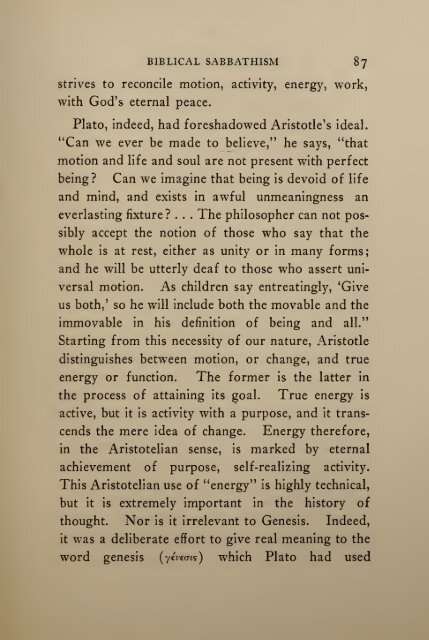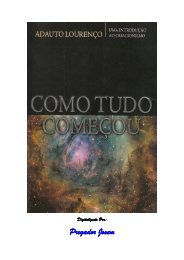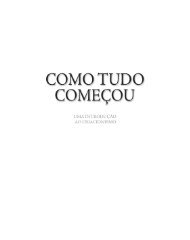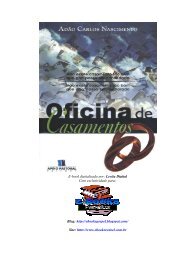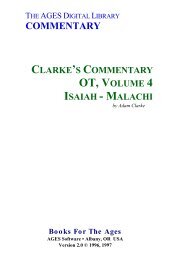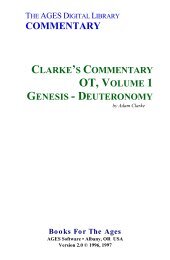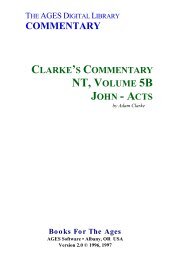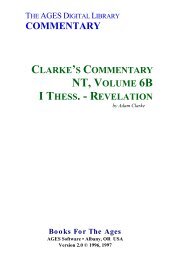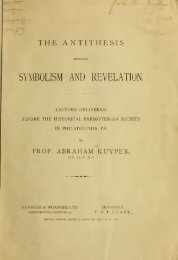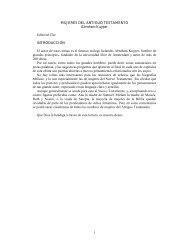Abram Herbert Lewis - Spiritual Sabbathism
Create successful ePaper yourself
Turn your PDF publications into a flip-book with our unique Google optimized e-Paper software.
BIBLICAL SABBATHISM 87<br />
Strives to reconcile motion, activity, energy, work,<br />
with God's eternal peace.<br />
Plato, indeed, had foreshadowed Aristotle's ideal.<br />
"Can we ever be made to believe," he says, "that<br />
motion and life and soul are not present with perfect<br />
being? Can we imagine that being is devoid of life<br />
and mind, and exists in awful unmeaningness an<br />
everlasting fixture? . . . The philosopher can not possibly<br />
accept the notion of those who say that the<br />
whole is at rest, either as unity or in many forms;<br />
and he will be utterly deaf to those who assert universal<br />
motion. As children say entreatingly, 'Give<br />
us both,' so he will include both the movable and the<br />
immovable in his definition of being and all."<br />
Starting from this necessity of our nature, Aristotle<br />
distinguishes between motion, or change, and true<br />
energy or function. The former is the latter in<br />
the process of attaining its goal. True energy is<br />
active, but it is activity with a purpose, and it transcends<br />
the mere idea of change.<br />
Energy therefore,<br />
in the Aristotelian sense, is marked by eternal<br />
achievement of purpose, self-realizing activity.<br />
This Aristotelian use of "energy" is<br />
highly technical,<br />
but it is extremely important in the history of<br />
thought. Nor is it irrelevant to Genesis. Indeed,<br />
it<br />
was a deliberate effort to give real meaning to the<br />
word genesis {y€vem


